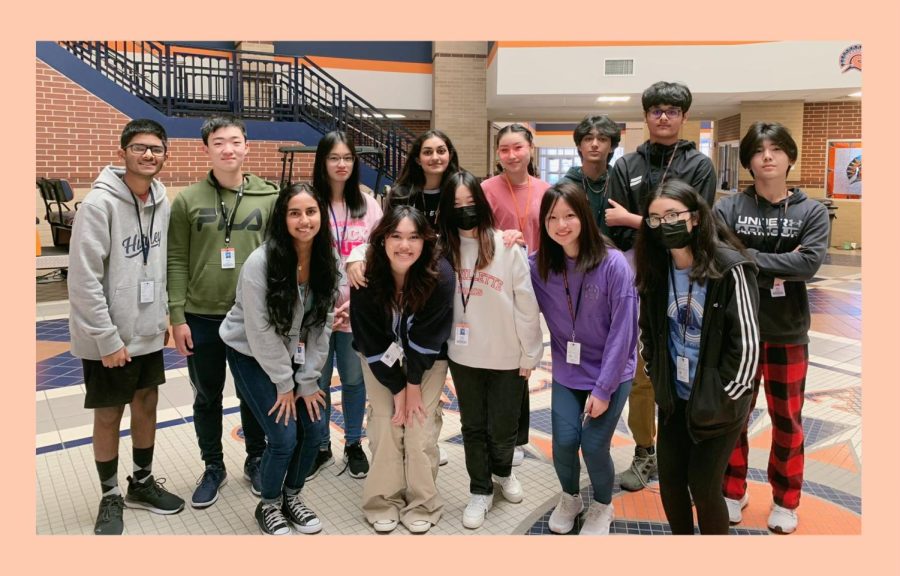Worth the Work
To most students, studying for a test in one subject is already a grueling enough task. Now multiply that one test by ten and you have the workload of the typical Academic Decathlon student. Sounds pretty daunting, right? However, for the students who participate in the Academic Decathlon (also known as Acadec), studying for multiple subjects over a span of a few hours is nothing new.
Senior Swati Misra’s interest for Acadec was first piqued in her sophomore year. Two years later and now an official member of the team, Misra is very glad that she decided to join.
“I was actually in AP Seminar with Mr. Mitchell in my sophomore year,” Misra said. “He told us a lot about Acadec through PowerPoints and presentations and [through that] I got interested in joining.”
The English prefix of deca is derived from the Greek word déka, meaning ten. Therefore it is easy to infer that Academic Decathlon consists of ten events, and, in this case, ten tests in ten different subjects.
“Students learn 10 subjects: math, science, economics, social studies, literature, art, music, essay, interview and speech,” junior Emily Huang said. “In the first semester, we compete in objective tests, which are math, science, economics, social studies, art and music. And in the second semester, we compete in subjective tests, which are interview, speech and essay.”
As would be expected, Acadec requires a lot of dedication as well as studying. Fortunately, Acadec is a class, not a club, which gives students time to study and collaborate everyday during school.
“The Academic Decathletes have to be very self-directed,” Acadec sponsor and teacher John Mitchell said. “So I try to provide a structure in which they can do that self-direction. [Although] I do have to put tests and quizzes and other graded items in front of them since we have to have grades and a gradebook.”
Acadec is both an individual as well as a team activity. A team is made up of nine people, three varsity members with an unweighted GPA of under 3.2, three scholastic members with GPAs between 3.0 and 3.7, and honors members with GPAs between 3.7 and 4.0.
“We have amazing team members and very patient coaches,” Huang said. “Our coach is actually very patient, responsible and understanding of our situation.”
Although Acadec requires a lot of work outside school, many decathletes enjoy the program and count all their hard work as worth it in the end.
“I think Acadec is a great opportunity,” Misra said. “It’s really fun. You get to bond with your teammates when you go to state you and make a lot of great memories.”
Natalie Guske is a senior and this is her third year on the Torch staff. This is her first year of being an editor and she is very excited to continue to learn and write the stories of her peers in this new role. Outside of newspaper Natalie plays trumpet...


